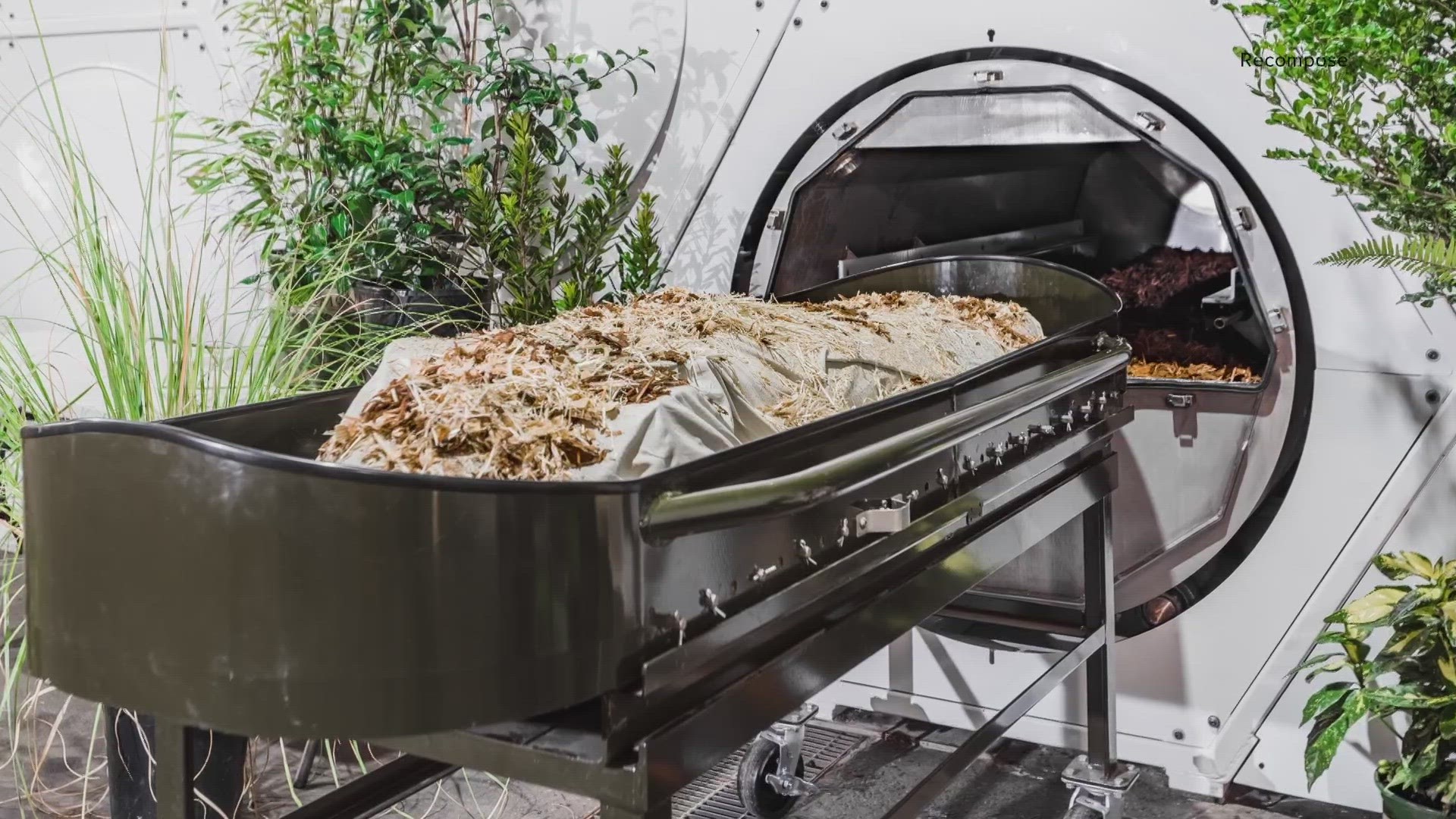CHANDLER, Ariz. — “Till you return to the ground, for out of it you were taken; For dust you are, and to dust you shall return “– Genesis 3:19.
Since the dawn of time, humans have found different ways of honoring the remains of loved ones. Coffin burials, cremation and bodies donated to science are some of the most common options in the modern era.
Now there’s Natural Organic Reduction, also called human composting: The process of converting human remains into soil which allows plants to grow.
“We place a human body into what we call a vessel along with a mixture of wood chips, alfalfa, and straw. That vessel rotates very slowly and that just facilitates the breaking down of the body into soil,” said Morgan Yarborough. Services Manager for Recompose.
Recompose is a full-service funeral home specializing in human composting.
Yarborough estimates it takes about six to ten weeks for the body to naturally break down into soil – enough to fill the back of a pickup truck.
Human composting is only legal in six states, including:
- Washington
- Colorado
- Oregon
- Vermont
- California
- New York
It is not legal in Arizona.
“There’s something to be said about how this process really connects people to nature the way other options don’t,” said Yarborough.
Some people grow trees or memorial gardens in honor of their loved ones with the soil.
Ted Makropoulos will grow sunflowers in honor of his late wife Carla.
“Put it in this area here. Get it cleaned up and get a nice size pot,” said Ted Makropoulos as he pointed to the back corner of the Chandler backyard. “Put it where the sun can get it but not too much sun.”
He lost Carla last April to heart failure.
“Loving caring and absolutely the strongest person I know,” said Makropoulos. “She loved with all of her heart.”
The flower garden was also Carla’s idea after learning about the new option on YouTube.
“She said, ‘and with the soil you can plant a sunflower for me every year,” said Makropoulos.
Since human composting is not legal in Arizona, Carla’s remains were flown to Recompose located near Seattle, Washington.
After a few months, the compost remains were shipped back to Arizona.
It was an emotional moment when Makropoulos allowed 12News to be there when he opened the compost for the first time.
The packaging looked like any other large landscaping soil. He reached into the compost soil as if he was reconnecting with his wife.
“Surreal. Still peaceful of course…surreal,” said Makropoulos.
He’ll use it to create new life.
“Just being able to plant those flowers and know that this soil came from the process of my wife ... there’s just an inner peace,” said Makropoulos.
>> Download the 12News app for the latest local breaking news straight to your phone.
12News on YouTube
Catch up on the latest news and stories on the 12News YouTube channel. Subscribe today.

